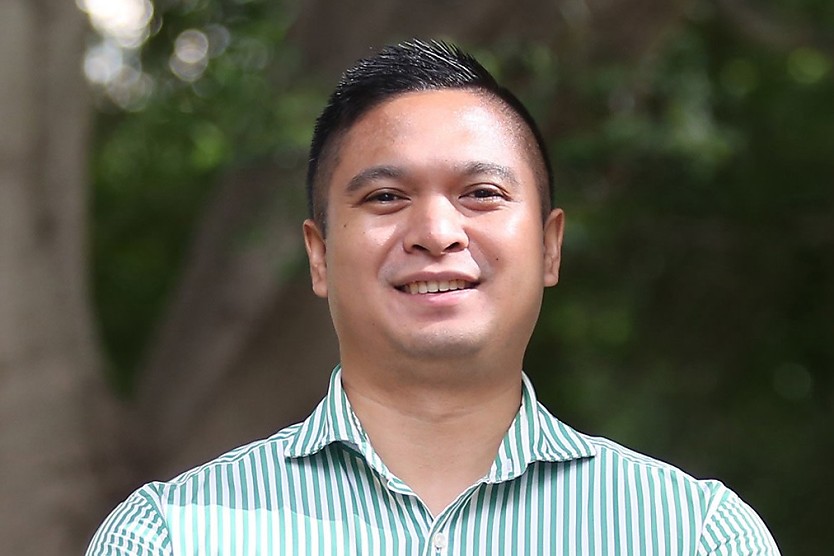How systematic racism impacts Asian Australian lawyers
SHARE THIS ARTICLE

In response to a recent Human Rights Commission report, the president of the Asian Australian Lawyers Association has underscored the pressing necessity to address systemic racism within the legal profession to ensure that all feel safe and respected regardless of their background.
Editor’s note: This story first appeared on HR Leader’s sister brand, Lawyers Weekly.
The Australian Human Rights Commission (AHRC) has published a report, An Anti-Racism Framework: The Perspectives of Multicultural Australia, which examines and underscores the persistent issue of systemic racism in Australia.
The report is based on insights gathered from over 860 participants and a survey that included 411. It reveals the alarming instances of systemic racism present within various domains, including workplaces, the healthcare system, and educational institutions.
The AHRC report also highlighted the ongoing discrimination experienced by First Nations peoples as well as culturally and linguistically diverse (CALD) communities, mainly Asian Australians.
Key findings from the report reveal the pervasive nature of systemic racism, which extends beyond individual acts of prejudice to infiltrate institutional practices, and many respondents experience barriers to employment and career advancement, citing bias against individuals with non-Anglo names.
Following the recent report’s release, the Asian Australian Lawyers Association (AALA) has expressed its commendation and support for the findings, which accurately reflect the numerous experiences that Asian Australians encounter firsthand in their workplaces.
Matt Floro, the president of the AALA, highlighted the pervasive systemic racism that Asian Australian lawyers face in their professional environments and the various forms it comes in.
“Asian Australian lawyers encounter various forms of systemic racism, including stereotyping and typecasting, biased recruitment and performance review practices, and exclusion from leadership roles,” Floro said.
He disclosed that Australian lawyers often find themselves pigeonholed by stereotypes that paint them as “quiet technicians” rather than being viewed as “expressive leaders”. This stereotype manifests in expectations that they should “remain silent and to speak last in meetings”, but they are ironically “criticised if they attempt to break free of this typecast”.
As a result of this “discriminatory labelling”, Floro expressed, it can not only affect their workplace interactions but also “infiltrate recruitment and review processes, negatively affecting employee wellbeing and promotion opportunities”.
Floro underscored how these experiences resonate and are consistent with the findings of the AHRC report, expressing how “similar to the AHRC report, Asian Australians express frustration with ineffective reporting systems, fear of retaliation, and minimal representation in senior or leadership roles”.
“Barriers to advancement are often due to subjective evaluations, such as the highly problematic notion of ‘cultural fit’, that hinder career progression – despite individuals meeting or exceeding performance criteria and being well or over-qualified,” he said.
Due to these barriers, Floro said, numerous Asian Australian lawyers feel apprehensive about submitting complaints, often fearing that their concerns may be dismissed or minimised.
“Additionally, many feel unsafe reporting discrimination or racism, as complaints are frequently dismissed, minimised or rationalised, leaving individuals labelled as troublemakers or the wrong ‘fit’.
“Some choose to remain silent to avoid negative repercussions on their career, thereby unintentionally conforming to the ‘quiet technician’ stereotype,” he said.
Floro articulated the necessity of a multifaceted approach within the legal profession to tackle these systemic issues effectively.
“The legal profession must adopt comprehensive anti-racism policies, including cultural competency and culturally sensitive communication and leadership training and trauma-informed complaint mechanisms,” he said.
Floro also emphasised the importance of implementing “fair and unbiased recruitment, retention, and promotion strategies” as essential measures to address the systemic challenges faced by Asian Australian lawyers within the legal profession.
He said: “Institutions should establish safe reporting systems to support victims and prevent retaliation. Regular independent, external assessments of workplace practices are necessary to detect and address biases.”
Floro advocated for organisations to collaborate with multicultural communities and their leaders, as such initiatives are essential for fostering meaningful and sustainable change.
“Collaboration with multicultural communities and leaders will also promote meaningful, lasting change – but leaders from multicultural backgrounds should be appropriately remunerated for any training they provide and not be expected to provide those services for free,” he said.
